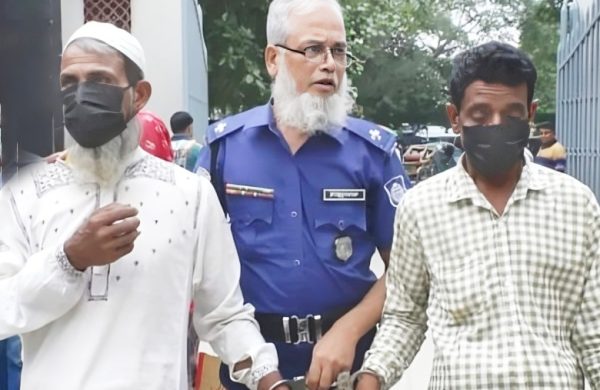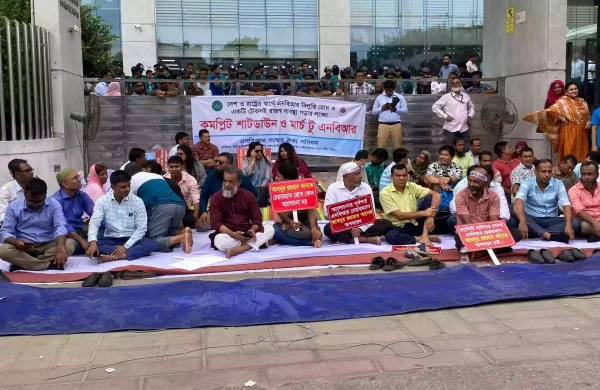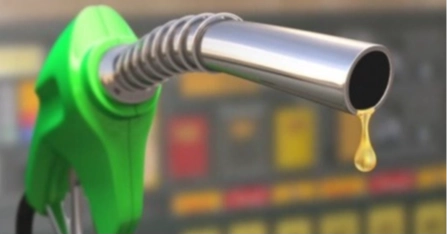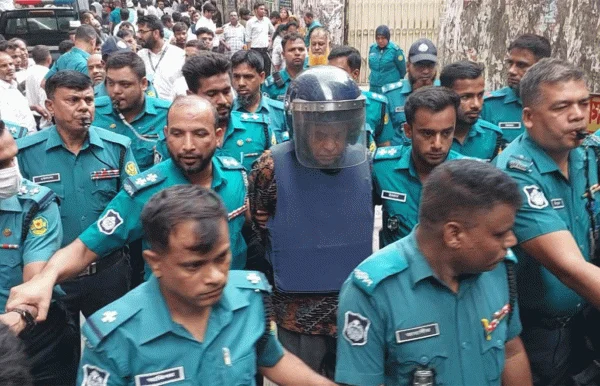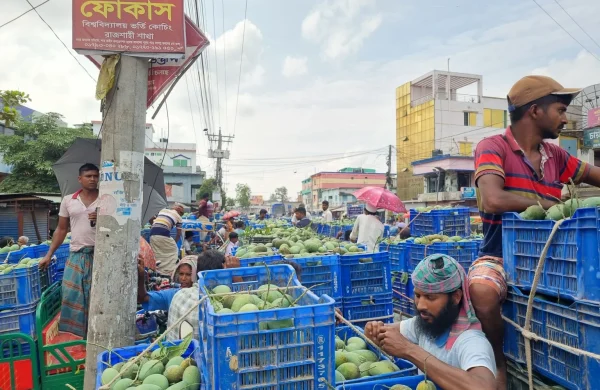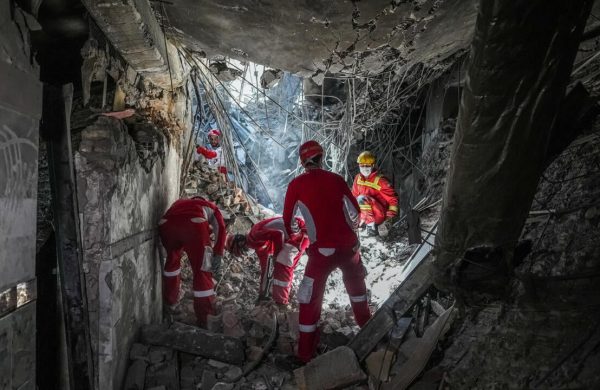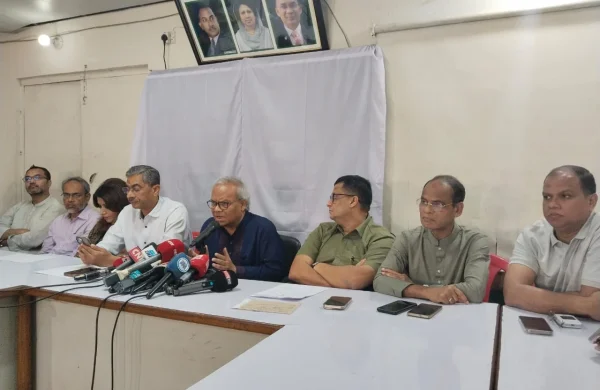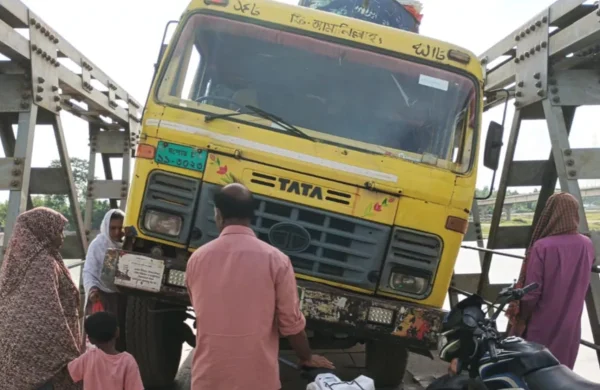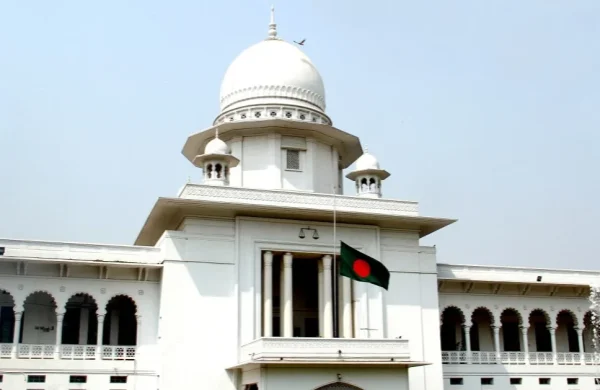No bribes, only commission..!
- Update Time : Wednesday, June 25, 2025
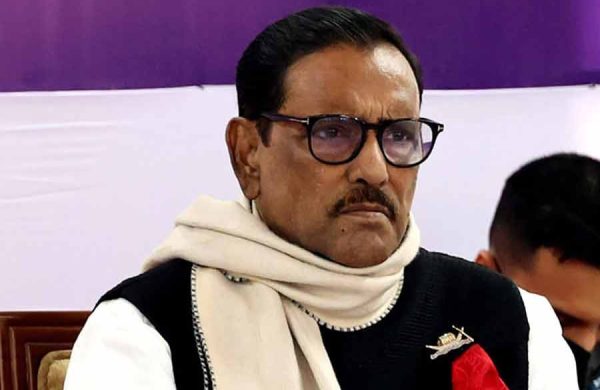
Staff Correspondent:
During the Awami League’s 15-and-a-half-year rule, Obaidul Quader emerged as one of the most powerful figures in government. For 12 and half years, he served as the Minister for Road Transport and Bridges, and for 11 years, he was widely viewed as the second-most influential figure in what critics termed a “fascist regime”.
Known for his abrasive and often tasteless political remarks, Quader earned the mocking nickname “Kauwa Quader” (Crow Quader). His harsh tone and controversial statements drew widespread criticism, yet he managed to secure three consecutive terms as the party’s general secretary. Though he publicly declared, “I will not flee,” reports now claim he has done just that.
Despite his frequent rhetoric against corruption, Quader allegedly presided over one of the most corrupt ministries in the country. He claimed to have eliminated bribes from the Road Transport and Bridges Division, but investigations suggest he merely replaced bribes with a formalised commission system. Every project approved by the ministry reportedly included a 20% commission for Quader, embedded into the Development Project Proposal (DPP) from the outset. No contractor, big or small, received a work order without paying this fee.
Through this mechanism, Quader is believed to have amassed massive illicit wealth — allegedly embezzling over Tk1 lakh crore during his tenure.
According to official data, the Roads and Highways Department (RHD) received a total allocation of Tk1,69,449 crore during his time in office, with Tk1,27,087 crore spent on construction. Fifteen selected contractor firms, who reportedly paid regular commissions, received 72% of the total contracts.
The World Bank has identified road construction as one of the most corruption-prone sectors globally. In Bangladesh, building a four-lane highway costs Tk21 to Tk100 crore per kilometre — nine times more than in neighbouring India and twice the cost in Europe. Experts say initial project costs are deliberately inflated by 25–30%, of which 20% was allocated as commission to Quader, and the remaining 10% shared among other stakeholders.
According to the Public Procurement Act (PPA) 2006 and Public Procurement Rules (PPR) 2008, all government work must go through a tendering process. As of July, RHD had blacklisted 44 companies — most reportedly for failing to deliver Quader’s commission. Officials said contractors were blacklisted if the commission was not paid in full.
Records show the top 10 contractors under his ministry received 6,509 work orders worth Tk17,450 crore. In partnership with others, they received another 40,232 orders worth Tk83,178 crore. Allegations suggest Quader’s wife, brother, and other close relatives were involved in helping secure these deals. Some contracts were also reportedly backed by influential Awami League leaders.
The e-GP tendering system permits contractors to bid 10% above or below the estimated price. Insiders claimed RHD officials would leak this estimate in exchange for bribes, leading to nearly identical bids. In such cases, work orders were issued based on the “Past Performance Matrix”, where 140 out of 300 points were given for the number of past projects, 100 for their financial value, and 60 for ongoing work — a system said to benefit those already favoured by the ministry.
Quader also reportedly violated regulations in acquiring wetlands, haor regions, and farmlands for road construction under pressure from contractor lobbies. While these projects were forecast to carry 26,000 vehicles daily, most remain underused — with only a few rickshaws and motorcycles operating on the roads.
Sources further allege that many feasibility studies were exaggerated to show the projects as economically viable. Irregularities began at the DPP stage itself, with fake feasibility reports prepared and submitted in as little as 24 hours. In many cases, RHD office heads personally drafted the DPPs to retain control. The Planning Commission, at times, faced pressure to approve projects quickly. Officials reportedly paid Tk2 to 10 lakh in bribes to commission staff for favourable comments.
Environmental Impact Assessment (EIA) reports were also allegedly manipulated in exchange for money to clear project approvals — a process few dared to oppose given Quader’s position as the government’s second most powerful figure.
It is alleged that 25–30% of the estimated project budget was included at the DPP stage solely to accommodate corruption. Local RHD offices ensured Quader’s share — and that of others — was embedded from the beginning.
The contractor selection process was also reportedly fixed during DPP drafting. Some DPPs included optional or inflated work items that were never intended to be executed. Engineers and contractors allegedly pre-arranged the actual material values and cost breakdowns.
Corruption was also rife in appointing project directors. Only those trusted to deliver Quader’s commission were selected — with some officials reportedly holding up to 12 directorships simultaneously.
Through this entrenched system, Quader allegedly turned the Road Transport and Bridges Division into a “commission ministry”, where no work could proceed without his approval — or payment.


